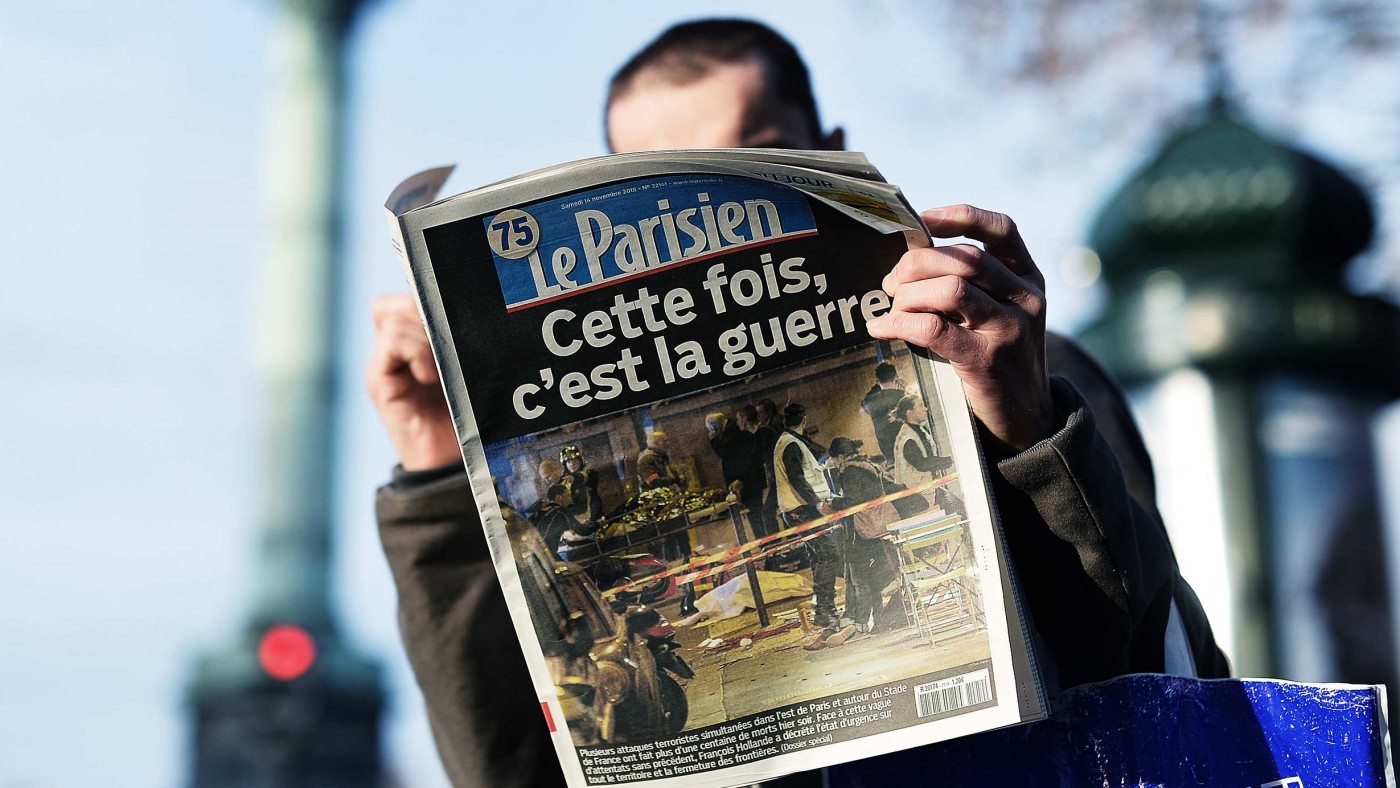A lot of rubbish, even more than usual, has appeared on the internet since the Paris attacks, with social media warriors questioning the mainstream media’s allegedly skewed priorities. Hey, runs the Corbynite analysis, why all the coverage of Paris when Beirut or Turkey gets ignored when bombs go off there?
It is certainly a positive development that the news trade gets more external scrutiny now than it used to, back when newspapers had control of a valuable scarce resource (advertising space), a lot of cash to spend as they wanted and an assumption that opinion should be handed down by them from on high. The media world is now much more jumbled and open to challenge than it was, which is mostly for the good. But sometimes the critics don’t know what they’re talking about. So, as a journalist, here are a few points in response:
1) News is a capitalist business and the people producing it or passing it on have to pay attention to what their audiences want. If they don’t, they get fired or go out of business. The BBC is in a special position because it is funded by the license fee, which means it can sometimes take a different approach. Even so, it is up against skilled commercial competitors and must compete on mainstream territory or face derision and rejection by audiences. Equally, the best of those commercial competitors don’t chase ratings alone because it makes for unrewarding coverage that looks plastic. They produce a blend of what audiences want and what journalists either think matters or think may have been overlooked.
2) Foreign news is out there, you just have to look for it. Even allowing for the scaling back in the number of corespondents, as advertising has slid under an assault from the internet, there is still masses of good, important work done by newspapers on foreign territory and by news agencies that are often given insufficient credit. It isn’t screaming out at you from the front page of your free newspaper on the train or bus in the morning? It’s still out there, really. Use a range of news sources. Google stuff. Use your own brain to find it.
3) The greatness weakness of newspapers in the UK now is actually domestic, in that all manner of areas that used to get close scrutiny are not covered as they were twenty years ago before the news business started to get squeezed and news reporters were chained to their desks in the office. I’m thinking here of the way that fights and scandals inside big public institutions – in public life, the NHS, business, science and the arts – used to spill onto the pages of the broadsheets. Yes, yes, some of it still makes it, but too many big organisations in the UK are getting a free pass because newspapers (which still set the agenda for broadcast) are stretched thin.
4) If you care about any of this, please go and buy a newspaper or two or subscribe to a media outlet that charges. With the advertising market going through its latest interesting transformation, how else do you think there will be good reporting of the stuff you think matters if you don’t pay for it?
5) We usually care more about bad news that happens close to us or in countries with which we have close ties. That is what moves a story from the foreign digests onto page one. You can moan about this, but you might as well moan about the weather. The lives of those lost in a bus crash in Bolivia are as important as those of a British tourist party in the Alps, but one is much more likely to make headlines in the UK, because we feel more connected to it.
6) Even so, there are exceptions, and quite a few of them, often driven by the whim of an editor or a senior reporter who just decides that something matters because it does and deserves a higher place in the running order because they think so. This can apply to a famine, as when the BBC went flat out on the Ethiopia disaster in 1984, in an era when famines were pretty commonplace in the third world. Or it can simply be a quirky foreign story that illustrates a broader human truth being given greater prominence because the editor likes it. It might just be a funny or uplifting tale used to balance all the death and destruction on page 1.
7) None of this is perfect or perfectible. There is no correct formula for news, no perfect algorithm despite what Facebook might pretend, that produces the right sort of news coverage always in the right order. Readers are fickle; journalists are hardened to it. Working at speed, hacks try, and sometimes fail, to make something interesting and coherent of the torrent of information each day. Goodness, this is not a plea for pity. It is a great way to earn a living if you can. But they are not priests tending the sacred flame of news. Most do it because they enjoy it, think it matters a lot and have mortgages to pay like the rest of us.


